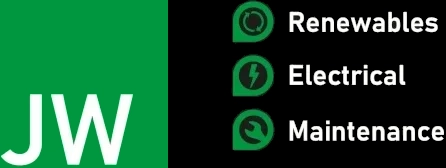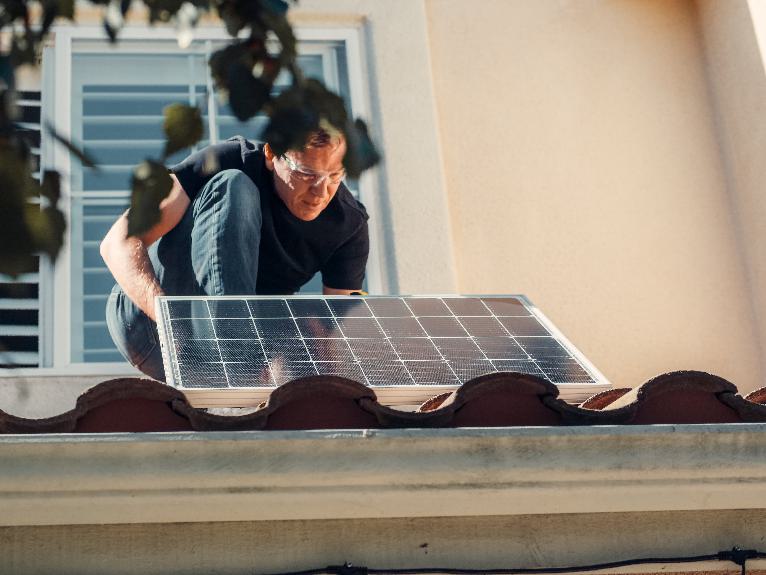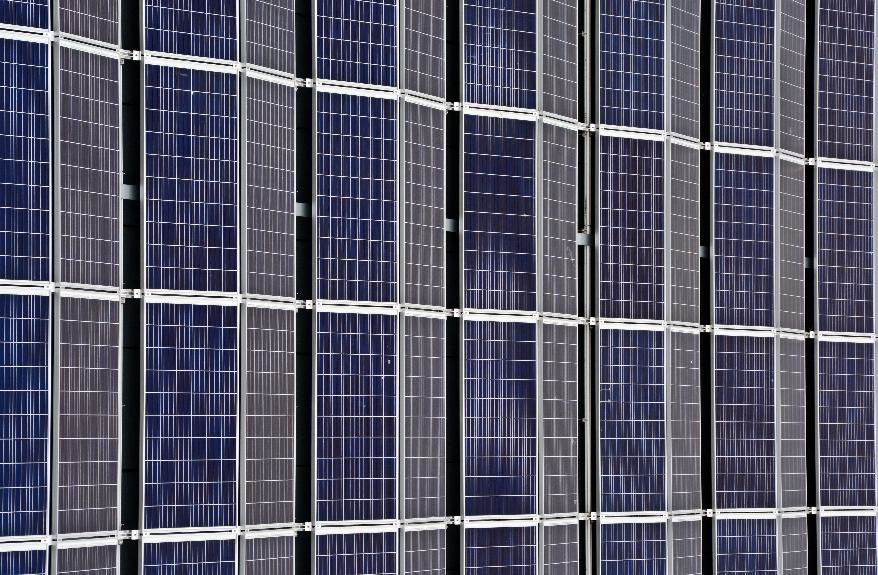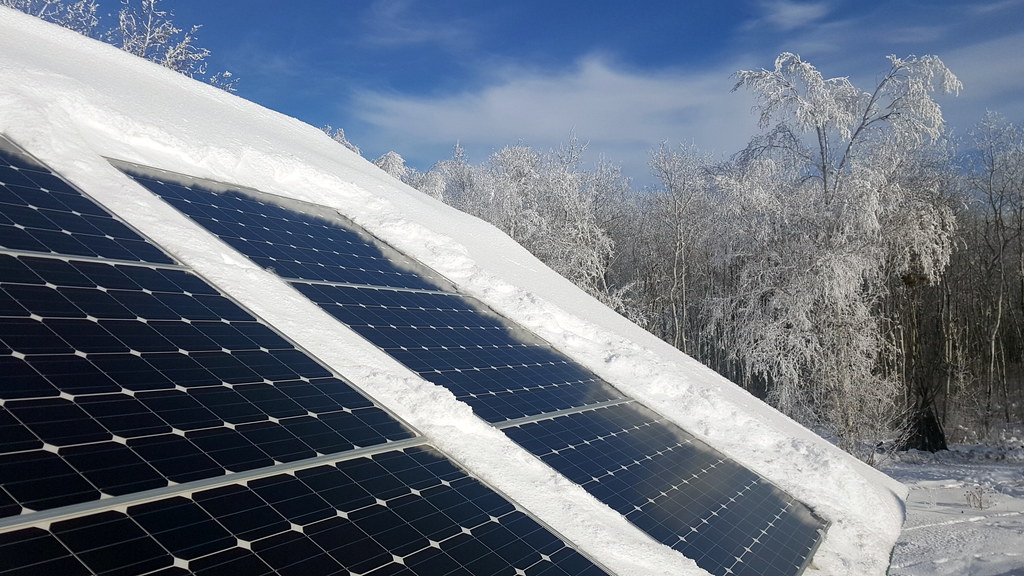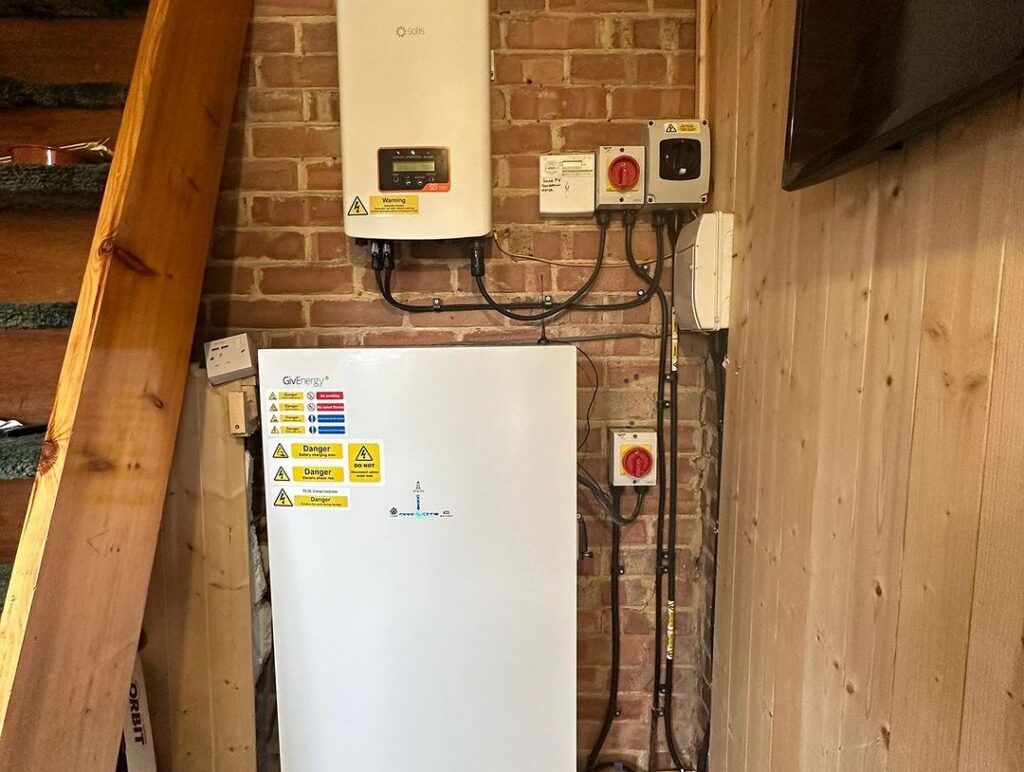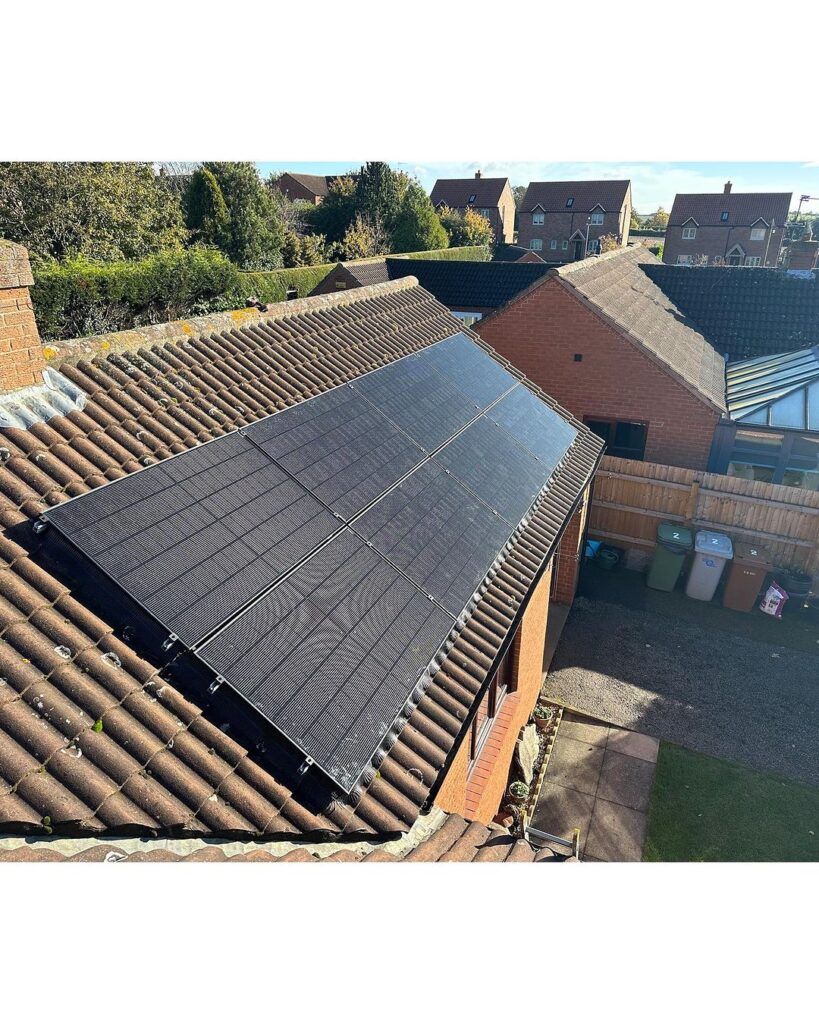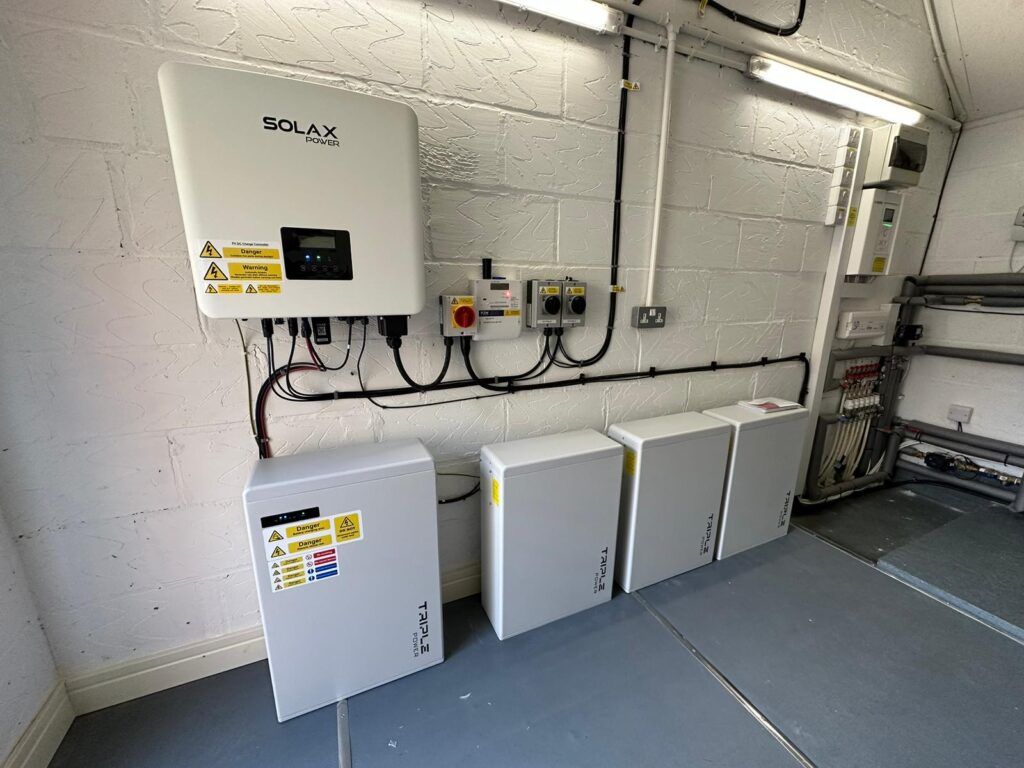If you’re considering joining the 1.3 million UK households that have already installed solar panels, you might be wondering if your house is a good candidate for solar energy.
Before you make the decision to go solar, there are several key factors to consider that can determine the suitability of your home for solar panels.
From the orientation and condition of your roof to the amount of sunlight it receives, there are important aspects to evaluate in order to make an informed choice.
Understanding these factors can help you determine if your house is a good fit for solar panels and can potentially save you money in the long run.
Key Takeaways
- Assess the suitability of your roof pitch and material for solar panel installation, considering additional mounting equipment may be required for roofs outside the ideal pitch range.
- Evaluate sun exposure and potential obstructions that could block sunlight, regularly monitoring changes in the surrounding environment for new obstructions.
- Ensure your roof is in good condition and can bear the weight of solar panels, addressing any existing issues before installation.
- Conduct shading analysis to determine the best panel placement and minimize the impact of potential obstructions like trees or nearby buildings that cast shadows.
Almost without exception, most solar installers will do the above steps as part of an initial remote rooftop survey.
Roof Orientation
When considering the orientation of your roof for solar panels, it’s important to ensure that it receives maximum sunlight throughout the day. The angle of your roof, known as the roof pitch, plays a crucial role in determining how much sunlight your solar panels can harness. Ideally, a roof with a pitch between 30 and 45 degrees is perfect for solar panels, as it allows for optimal sun exposure.
If your roof has a pitch outside of this range, it may still be suitable for solar panels, but you may need to invest in additional mounting equipment to ensure the panels are tilted at the best angle for sunlight absorption.
Another factor to consider is the material of your roof. While solar panels can be installed on various types of roofing materials, some are more conducive to solar panel installation than others. For instance, asphalt shingles, metal, and concrete tile roofs are excellent choices for solar panels, as they provide a sturdy base for installation.
On the other hand, if your roof is made of materials such as slate or wood shake, it may require extra care during the installation process to ensure the panels can be securely mounted.
Ultimately, the orientation of your roof and its material are essential considerations when determining the feasibility of installing solar panels. By assessing these factors, you can ensure that your roof is well-suited for solar panel installation, allowing you to harness the maximum energy from the sun and contribute to a sustainable future.
Sun Exposure
To maximize the efficiency of solar panels on your roof, it’s crucial to ensure that they receive optimal sun exposure throughout the day. The efficiency of solar panels is directly linked to the amount of sunlight they receive. When considering sun exposure, it’s important to assess your roof’s orientation and any potential obstructions that could block sunlight. Trees, nearby buildings, or even chimneys can cast shadows on your roof, affecting the solar panel efficiency.
As the seasons change, so does the sun’s path across the sky. In the summer, the sun is higher, providing more direct sunlight for longer periods. Conversely, in the winter, the sun’s path is lower, which may result in shorter periods of direct sunlight. Considering these seasonal changes is important when determining the sun exposure your roof receives throughout the year.
To ensure optimal sun exposure for your solar panels, regularly monitor any changes in the surrounding environment. Keep an eye out for new obstructions that may arise over time. Additionally, consider consulting with a solar panel installation professional to assess the best placement for your panels based on your specific location and the seasonal variations in sun exposure.
Roof Condition
Assess the structural integrity of your roof to ensure it can support the installation of solar panels. It’s important to consider the condition of your roof before proceeding with the installation of solar panels. Here are some key factors to consider:
- Roof maintenance: Regular maintenance of your roof is essential to ensure its longevity and structural integrity. Inspect for any signs of damage or wear and tear, such as cracked or missing shingles, as these could indicate potential issues that need to be addressed before installing solar panels.
- Structural integrity: A structurally sound roof is crucial for supporting the weight of solar panels. Ensure that your roof can bear the additional load without compromising its integrity. It may be necessary to consult with a professional to assess the structural capacity of your roof.
- Weather conditions: Consider the typical weather conditions in your area and how they might impact your roof. Harsh weather, such as heavy snowfall, high winds, or intense heat, can cause damage to an already compromised roof. Address any existing issues before installing solar panels to prevent further damage.
- Potential damage: Installing solar panels on a roof with existing damage can exacerbate the situation. Any underlying issues should be addressed beforehand to prevent complications down the line.
Taking these factors into account will help ensure that your roof is in good condition and ready for the installation of solar panels. Regular maintenance and addressing any potential issues won’t only support the installation process but also contribute to the overall longevity of your solar energy system.
Shading Analysis
Shading analysis involves evaluating the amount of shade that may affect solar panel performance. When considering solar efficiency, it’s essential to assess the impact of any potential obstructions such as trees, chimney stacks or nearby buildings that could cast shadows on your roof throughout the day.
Tree coverage can significantly impact the effectiveness of solar panels. During the planning phase, take note of any trees that may obstruct sunlight from reaching the roof. While trees provide numerous benefits, including shade for your home, they can also reduce the amount of sunlight available for solar panels. A shading analysis will help determine the best placement for solar panels to minimize the impact of tree coverage, ensuring maximum solar efficiency.
Energy Consumption
Consider your household’s daily energy consumption to determine the potential impact of integrating solar panels for your home. Understanding your energy usage is crucial in evaluating the benefits of solar panels and making informed decisions that align with your goals for cost savings and environmental impact. Here are some key points to consider:
- Energy Efficiency: Assess the efficiency of your home’s appliances and systems. Upgrading to energy-efficient appliances and implementing smart energy practices can significantly reduce your overall energy consumption, making it easier for solar panels to meet your household’s needs.
- Cost Savings: By integrating solar panels, you can harness renewable energy to power your home, potentially leading to substantial cost savings on your electricity bills over time. Analyzing your energy consumption patterns will help determine the appropriate size and capacity of solar panels needed to maximize these savings.
- Environmental Impact: Embracing renewable energy sources like solar power can significantly reduce your carbon footprint and contribute to a more sustainable environment. Understanding your energy consumption will allow you to gauge the potential environmental benefits of switching to solar energy.
- Renewable Energy: Evaluating your energy consumption patterns will help you gauge the feasibility of relying on renewable energy sources such as solar power. By integrating solar panels, you can actively participate in the transition towards a cleaner and more sustainable energy future.
Local Regulations
Before installing solar panels on your house, it’s crucial to understand the local regulations that govern their installation – unless your property is a listed building, for the vast majority of cases, local authorities permit rooftop solar installations, with the provisos mentioned in the section below (Zoning).
Zoning
Local zoning regulations can sometime play a role in determining whether you can install solar panels on your property. Here’s some factors that you might need to consider:
- Permitted land use: Check if your property is zoned for residential and/or commercial use to ensure that solar panel installation is allowed.
- Setback requirements: Find out the distance your solar panels must be from property lines, buildings, and roads to comply with zoning regulations.
- Height restrictions: Some areas have height limitations for structures, which may impact the installation of solar panels on your roof or property.
- Historic districts: If your property is in a designated historic district, there may be additional regulations to consider for solar panel installation.
In most cases, you’ll probably be aware of any such restrictions, as you’ll already be familiar with anything relevant in the lead-up to purchasing your current home (so the above is really just a reminder in that case!).
| Factors to Consider | Description |
|---|---|
| Installation Cost | Varied based on location and complexity |
| Time Frame | Ranges from weeks to months based on local regulations |
Your Local DNO
If your solar installation has up to 3.68kW of solar panels, we will contact your local “Distribution Network Operator ” subsequent to the installation, to inform them. For installations greater than 3.68kW, the law requires us to submit a request for the installation (called a “G99” or “G100”). This is something that any professional installer (including us, obviously!), will do on your behalf, prior to confirming an install date.
A Distribution Network Operator (DNO) is the entity responsible for delivering electricity to your home. They maintain the power lines, both above and below ground. DNOs are different from energy suppliers like EDF or OVO Energy, who sell you the electricity. Instead, DNOs handle the infrastructure that transports electricity to buildings.
The UK is organized into 14 distinct electricity distribution areas, each managed by a DNO. Some DNOs oversee more than one area – to discover which DNO provides service to your area, you can use the Energy Network Association’s postcode checker on their website.
Solar Panel Placement
When considering solar panel placement for your house, it’s important to take into account the optimal sun exposure and the availability of roof space.
These two factors play a crucial role in maximizing the efficiency and output of your solar panel system.
Optimal Sun Exposure
To maximize the efficiency of your solar panels, carefully consider the placement to ensure they receive optimal sun exposure throughout the day. This will help you get the most out of your investment.
Here’s how to achieve optimal sun exposure:
- Roof Orientation: Ensure that the solar panels are installed on a south-facing roof to capture the maximum sunlight.
- Shade Analysis: Identify any potential shade from nearby trees, buildings, or other obstructions that could affect sunlight exposure.
- Solar Panel Tilt Angles: Adjust the tilt angles of the solar panels according to your geographical location to maximize sun exposure.
- Regular Maintenance: Keep the panels clean and free from any debris that could obstruct sunlight absorption.
Roof Space Availability
You can maximize the utilization of available roof space by strategically positioning your solar panels for optimal sunlight exposure.
When considering space utilization, it’s important to assess your roof structure. Look for any obstructions such as chimneys, vents, or skylights that could limit the available space for solar panel placement.
Evaluate the orientation and slope of your roof, as these factors can affect the efficiency of your solar panels. A south-facing roof with a slope between 15 to 40 degrees is generally ideal for maximizing sunlight exposure.
Additionally, it’s essential to ensure that the roof can support the weight of the solar panels. Consult with a professional to determine the structural integrity of your roof and the best placement for your solar panels.
Financial Considerations
Considering the financial implications of installing solar panels on your house is an important step in making an informed decision about this investment. When looking at the financial aspects of solar panel installation, there are two main factors:
- Cost Benefit Analysis: Conduct a cost benefit analysis to determine the long-term savings and benefits of installing solar panels. Consider the initial installation costs against the potential savings on your energy bills over the years.
- Return on Investment: Calculate the expected return on investment for installing solar panels. This involves comparing the upfront costs with the potential savings on energy bills and any income generated from excess energy production that’s fed back into the grid.
We provide estimates of the above, based on your annual energy usage, number of panels that can be suitably positioned on your rooftop surface(s), and other factors such as whether or not you’ll be installing a battery backup solution, your future energy patterns, and so on. If you have questions, do contact us!
Frequently Asked Questions
How Do Solar Panels Affect the Resale Value of My Home?
Installing solar panels can significantly increase the resale value of your home. They demonstrate energy efficiency and potential savings, which are attractive to potential buyers. Plus, with the rising popularity of sustainable living, solar panels can make your home stand out in the market.
The long-term energy savings and positive environmental impact also add to the appeal. Overall, solar panels can positively impact the resale value of your home and attract environmentally conscious buyers.
What Maintenance Is Required for Solar Panels?
To keep your solar panels in top shape, occasional cleaning is helpful, especially in periods of prolonged dry weather, where dust, dirt or debris cam accumulate and impact panel efficiency. In many parts of the UK, rainfall does a reasonably good job of keeping your panels clean.
How Do Solar Panels Impact My Homeowner’s Insurance?
When you install solar panels, it may impact your homeowner’s insurance. While solar panels can increase your home’s value, they might also lead to a premium increase.
It’s important to check with your insurance provider about coverage for the panels, potential liability, and any impact on insurance claims. Some insurance companies offer specific policies for solar panel systems, so it’s essential to review your options and ensure that your panels are adequately covered.
Can I Install Solar Panels if I Live in a Homeowners Association (Hoa)?
Yes, you can install solar panels if you live in a homeowners association (HOA).
It’s important to consult your HOA’s guidelines for solar panel placement and any restrictions.
You’ll need to get approval from your HOA before proceeding with the installation. The approval process typically involves submitting a proposal and following any specific requirements outlined by the HOA.
It’s crucial to ensure that your solar panel installation complies with the HOA’s regulations.
How Do Solar Panels Affect My Property Taxes?
When you install solar panels, you may qualify for tax incentives, potentially reducing your property taxes.
The added value of solar panels on your property could also affect your property assessment.
This can lead to an increase in property taxes, but some states offer exemptions or credits for renewable energy systems.
It’s important to research and understand the local tax laws and incentives to make an informed decision about installing solar panels.
Conclusion
So, if you’re considering solar panels for your home, there are several factors to keep in mind.
First, check your roof orientation, sun exposure, and condition. Ensure that your roof is in good condition and has enough space to accommodate the panels.
Next, consider any potential shading that could affect the efficiency of the panels. Trees or nearby buildings may cast shadows on your roof, reducing the amount of sunlight the panels receive.
It’s also important to evaluate your energy consumption. Solar panels are most beneficial for homeowners who use a significant amount of electricity. If your energy consumption is low, the financial benefits of solar panels may be limited.
Before installing solar panels, check your local regulations. Some areas have specific rules and restrictions regarding solar panel installations.
Lastly, consider the financial aspects. Calculate the upfront costs of purchasing and installing the panels, as well as any potential savings on your electricity bills. Additionally, research any available incentives or rebates that could help offset the initial investment.
Got Questions? Pop us a message on our contact form, or give us a call.
